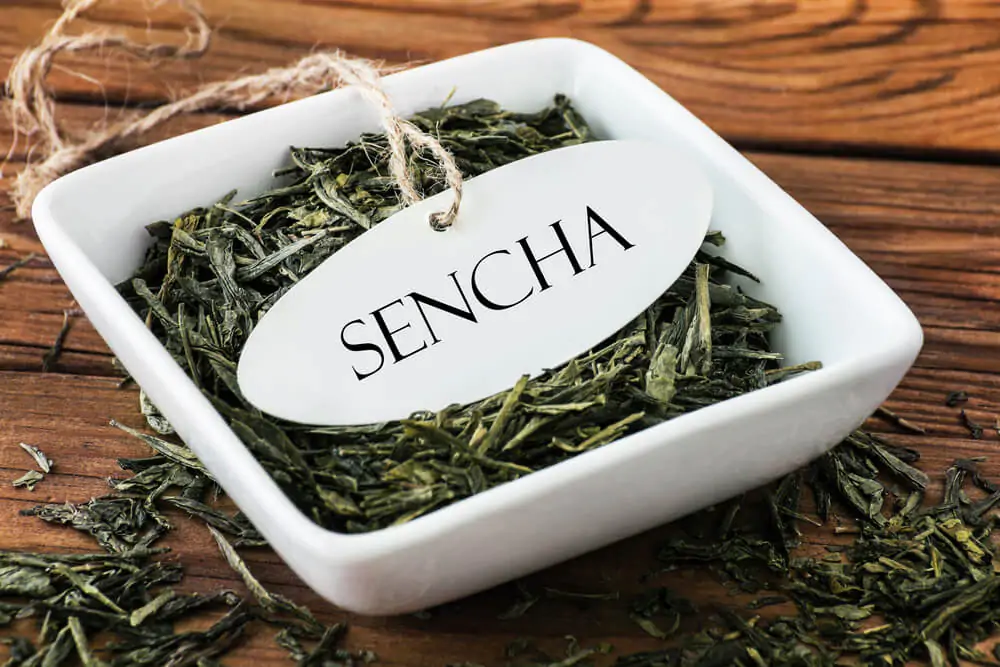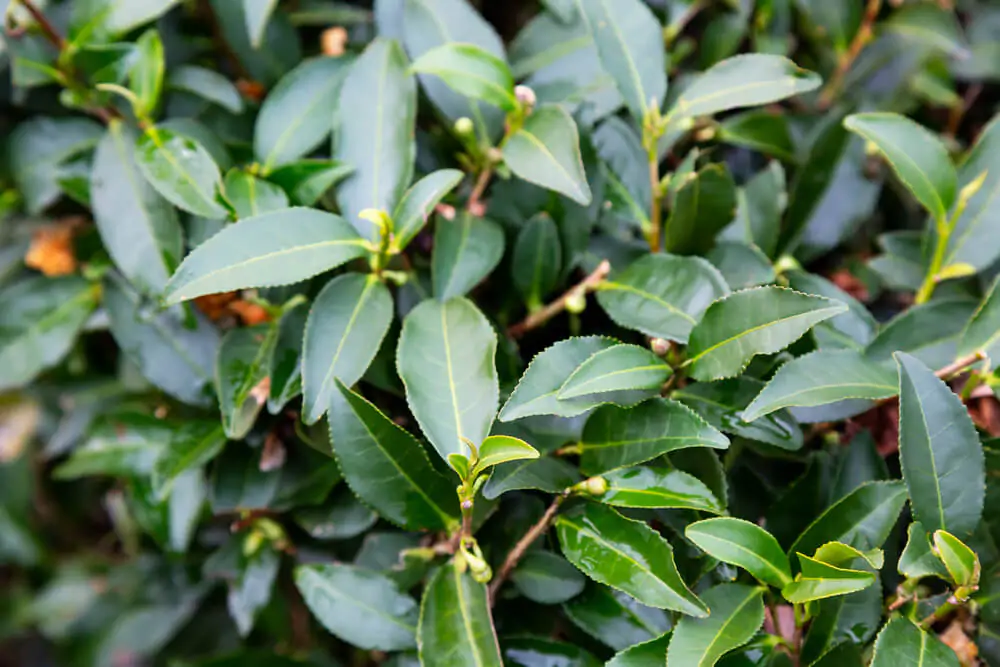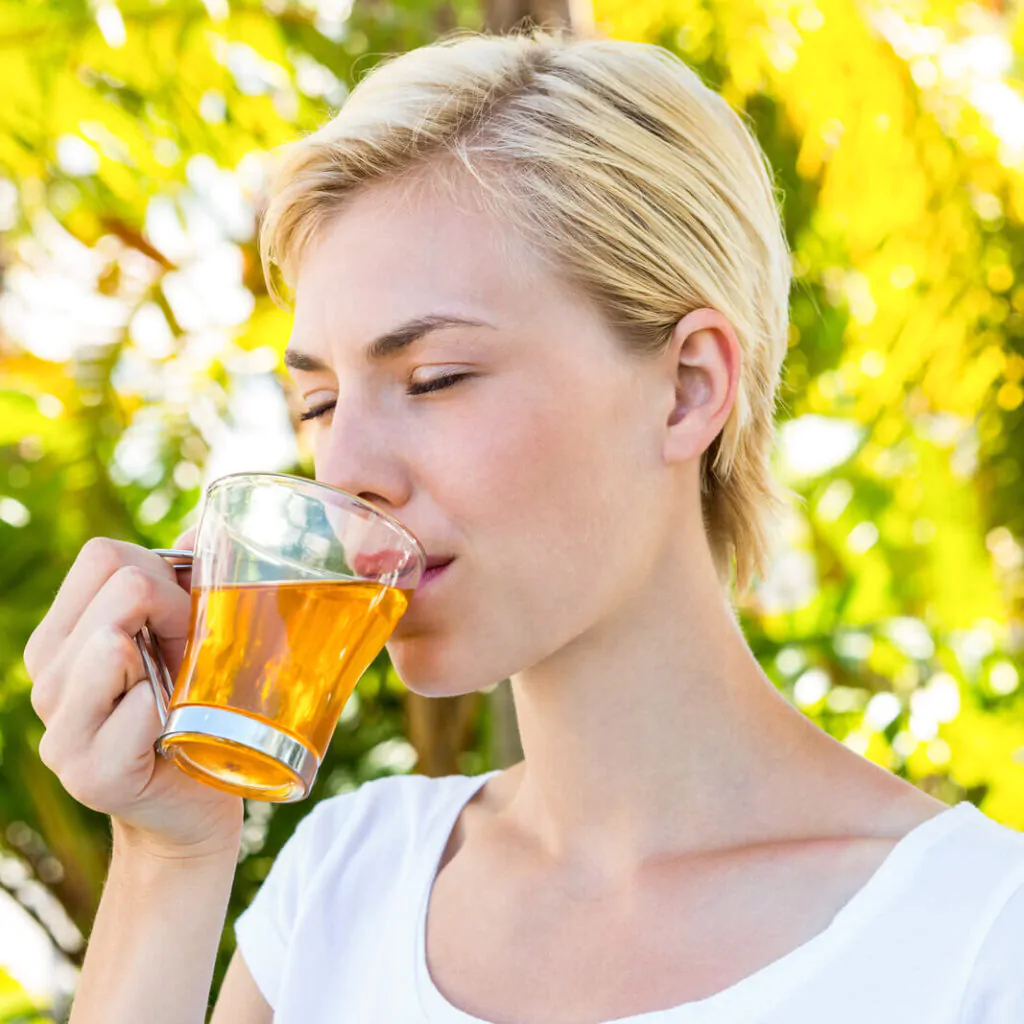What is Sencha tea? Well, it’s a wildly popular drink worldwide. It’s made from small green tea leaves from tea bushes and can be served hot or cold.

I drink a lot of tea every day. I’m talking about brewing multiple pots throughout a typical workday. It’s partly habit and partly a caffeine delivery mechanism.
And then I wonder why I have trouble falling asleep. Sencha tea might be a viable choice for me to use in the evenings, as it doesn’t have an exceptionally high caffeine content if brewed correctly.
This Japanese tea is light, has a quick brew time, and most importantly, is delicious.
What Is Sencha Tea?
Other than water, tea is the most widely-consumed beverage on the planet. There are many varieties of tea, including green tea, and one variety of green tea is the Japanese sencha.
It’s a lighter tea, making it ideal for iced tea, though a hot cup of sencha is also a prized beverage. And “prized” is the right word— sencha accounts for nearly 80 percent of all tea grown in Japan.
It consists of small leaves from Camellia sinensis, a tea bush, and after harvesting, the tea leaves are steamed to preserve their color and stop the leaves’ enzymes from breaking them down.
If you love tea, you’ll enjoy learning about Karak tea.

It follows, then, that the amount of time the leaves get steamed affects the flavor of the tea brewed from the leaves, so there are different varieties of sencha.
- Asamushi leaves are steamed for the shortest amount of time of all the types of sencha leaves— just 30 seconds. This tea is very light.
- Chumushi sencha comes from steaming leaves for one minute and is the most common sencha tea.
- Fukamushi sencha leaves have been steamed for up to two minutes. The resultant tea is dark and rich.
- Shincha is the sweetest sencha as it is brewed with leaves from the first springtime harvest of tea leaves.
Similarities to Other Teas
Perhaps the closest relative of sencha tea is matcha tea, though there are distinct differences in preparing each one. Where sencha leaves grow best in direct sunlight, the matcha leaves prefer a shadier upbringing.
When preparing the teas, sencha leaves get brewed in hot water, while matcha leaves get ground into powder before being stirred into hot water until the matcha produces its proprietary froth.
If you liked this post, you might also enjoy our guide on Smooth Move tea.
Benefits of Sencha Tea
The big headline here is that sencha tea may have cancer-fighting abilities, demonstrated in a study showing the brew’s tumor-shrinking qualities. While sencha tea isn’t quite a substitute for chemotherapy, it does provide other health benefits.

The presence of antioxidants in the body helps fight free radicals, which can do all sorts of damage on the cellular level, and sencha serves as a good source of antioxidants. It also contains a good dose of Vitamin C, and studies have shown that sencha tea lowers LDL cholesterol levels in animals.
Finally, green teas, in general, have been shown to play beneficial roles in the prevention of cardiovascular disease and atherosclerosis.
What all this means is that sencha tea— served hot or cold— can increase your metabolism and boost your energy levels (due to the caffeine). It also might lower your blood pressure, give your immune system a boost, and improve your skin (from the vitamin C and antioxidants).
Frequently Asked Questions
There’s so much information out there, so you may have questions that remain unanswered. Here are some of the more common questions.
When Should I Drink Sencha Green Tea?
Generally, people drink hot sencha tea after a meal, especially dinner. The lower-than-average caffeine levels mean you can wind down with the beverage. Don’t expect a big energy boost, though.
Can I Drink Sencha Tea At Night?
People can drink sencha tea at night and still have a relatively easy time falling asleep because it usually contains less caffeine than other teas, even other green teas.
That said, it may depend on how late you drink tea at night. Doctors generally recommend refraining from consuming any kind of tea within two hours of when you plan to go to bed.
What Happens If I Drink Green Tea Every Day?
Much scientific evidence points to the fact that drinking green tea— even if it isn’t sencha— regularly can stave off diabetes and other diseases. Studies suggest people consume between three and five cups of green tea each day to reap these benefits.
If you liked this article you’ll love Best Green Tea Brands.
